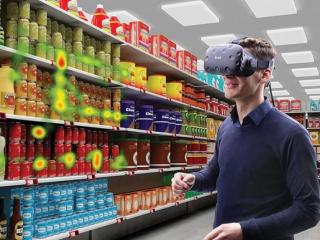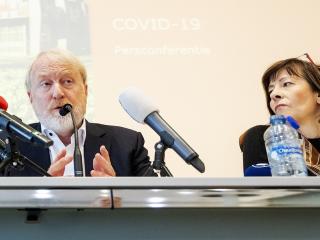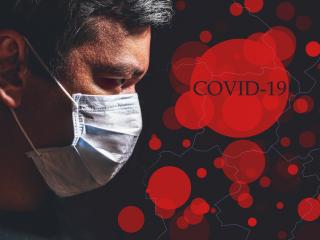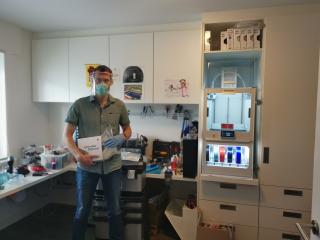Ten Tilburg researchers receive NWO grant for research into corona issues
Ten applications by Tilburg scientists have been honoured by the Dutch Research Council (NWO) in the 'corona fast-track' call for the collection of data that can only be collected during the COVID-19 crisis and for social issues that arise during the corona crisis. Out of 32 honoured proposals by NWO, 10 have been allocated to Tilburg University. We proudly present a selection.
1. Parenting in the time of COVID-19
Dr. Madelon Hendricx-Riem (Tilburg School of Social and Behavioral Sciences)
COVID-19 has upended family life. School closures, remote working, social distancing: it is a lot to navigate, especially for parents. Why are some parents successfully keeping their family life on track, whereas others are in distress? The proposed study will shed light on these issues by examining parenting across three countries: China, Italy, the Netherlands. The study will lead to knowledge on factors associated with impaired parenting, needed to target support to at-risk families.
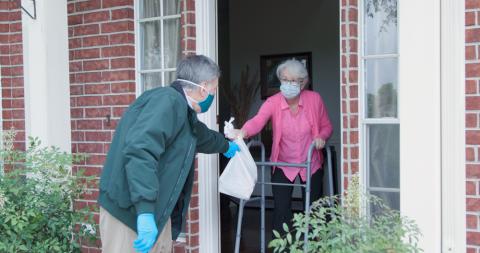
2. Why do people (not) adhere to COVID-19 preventive measures?
Dr. Nadine Bol (Tilburg School of Humanties and Digital Society)
The COVID-19 pandemic calls for drastic measures to prevent an unmanageable spread of the virus, yet we lack knowledge of how people respond to such measures. This project studies the impact of factors related to risk perceptions and media use on adherence to preventive measures over time. Nadine will identify clusters of the Dutch population particularly at risk for non-adherence, which is essential for devising adequate and possibly tailored communication strategies both for this and future pandemic health crises.
The Ministry of Education and NWO are providing € 15 million for urgent medical, social and societal research
3.The long-term effects of the coronavirus crisis on health, attitudes, and behavior for Dutch households
Dr. Bettina Siflinger (Tilburg School of Economics and Management)
Up to now, the LISS panel has fielded two waves of a questionnaire on the impact of the corona crisis on daily life in the Netherlands. This includes questions on how the Dutch handle working conditions, childcare and uncertain expectations. To continue this investigation through the crisis and beyond, Siflinger proposes a third questionnaire in May 2020. This will elucidate the impact of the crisis on household labor supply and mental health for the Dutch population.
4. Tracking levels of fear for the coronavirus
Dr. Gaëtan Mertens (Tilburg School of Social and Behavioral Sciences)
Many people are afraid of the coronavirus. Fear is an appropriate emotion as long as the pandemic is ongoing. However, once under control, it is important that fear for the coronavirus and related safety behaviors decline. Otherwise, prolonged fear could have unwanted consequences such as mental distress (at the individual level) and economic recession (at the level of countries). This project will track levels of fear for the coronavirus across time.
5. Incidence of COVID-19 and movement among migrants in the central Mediterranean region
Prof. dr. Mirjam van Reisen (Tilburg School of Humanities and Digital Sciences)
Under-detection of COVID-19 infection, coupled with high movement amongst vulnerable, health-fragile migrants, poses a risk to the management of COVID-19 in the Central Mediterranean. Due to war and unfavourable circumstances little information is available on (suspected) infection incidence and migrants’ movements. This undermines control of the crisis, migrants’ health and poses risks in Europe as destination. Open real-time data on (suspected) incidence of COVID-19 infections amongst migrants, their location and movements, is critical for researchers and policy-makers.
All ten honoured proposals can be found here.
Photo below: : Shutterstock/Ruwan Walpola

Background corona call
The corona crisis poses many new questions for society. There is an urgent need for research across the entire spectrum of disciplines, ranging from medical and healthcare research to research in the humanities, behavioral sciences, physical and natural sciences, and engineering. Research that is essential to build a knowledge base for political and general decision-making. The resulting decisions will be crucial for society, both in the short term – to combat the corona crisis – and in the long term – to navigate the post-corona era.
The ‘corona fast-track data’ call focuses on research to be conducted now, i.e. at the height of the corona crisis, and specifically research into issues, other than medical and healthcare issues, that arise in society during the crisis. Many projects are already in progress to gather essential information that can only be collected now.
There is an urgent need for research across the entire spectrum of disciplines
Research topics
The Ministry of Education, Culture and Science and the Dutch Research Council (NWO) are jointly providing € 15 million (OCW € 2 million, NWO € 13 million) for urgent medical, social and societal research. Various types of research are required. Potential research topics include the fight against the pandemic, drug development, improvements in current care, population behavior and behavioral changes in the Netherlands, and their impact on the spread of the virus. Other topics include social and economic consequences and the impact of measures on the well-being of the Dutch population. A broad spectrum of research is possible and necessary in this context, ranging from research relating to the virus itself to research into its spread and effective suppression, as well as research into the effects of social isolation.
Date of publication: 3 May 2020

